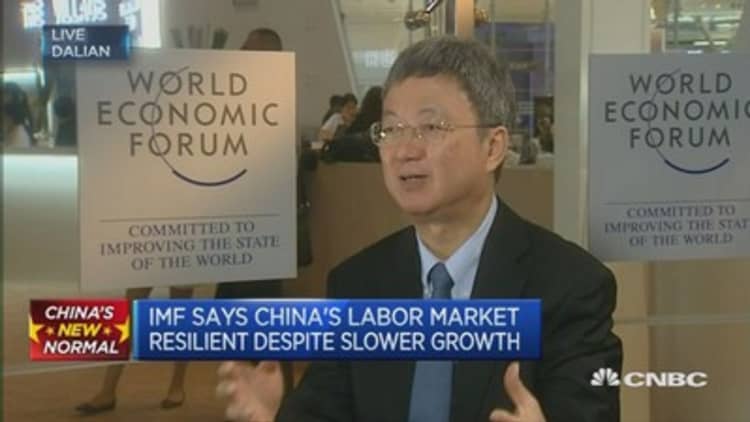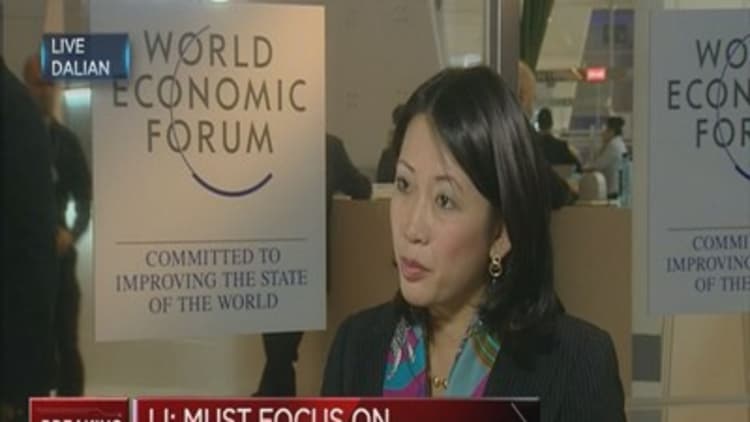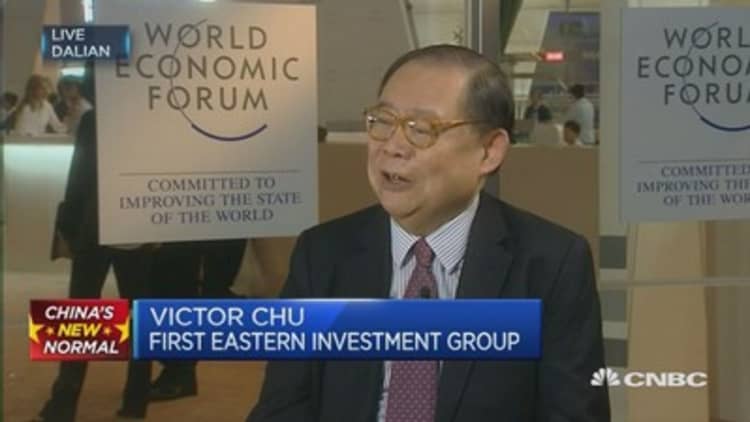


The world is willing to tolerate market swings in the world's second-largest economy if it means reforms are underway—that's the message from global experts at the World Economic Forum (WEF) in Dalian.
As long as Beijing keeps its exchange rate market-based, any volatility that follows is nothing to worry about, Zhu Min, deputy managing director at the International Monetary Fund (IMF) told CNBC on the sidelines of the conference known as the 'Summer Davos.'
"Experience says if you change exchange rates, you change market expectations, which increases market volatility. That's very normal."
Beijing's historic announcement to make the renminbi more freely floating on August 11 sent shockwaves throughout Asia and triggered further weakness among regional currencies as nations like Vietnam and South Korea worry about export competitiveness.
While several strategists believe the yuan is likely to depreciate further from its current 6.4 level against the dollar, Chinese Premier Li Keqiang announced at a WEF speech on Thursday that the currency will be kept "basically stable" going forward.
The other primary source of China's market volatility lies in its stock markets. An aggressive rout that started in mid-June wiped around $3 trillion off China-listed shares, according to estimates. The benchmark Shanghai Composite is now more than 18 percent lower in the past thirty days.
Read MoreLi: China economic transformation 'painful and treacherous'
If investors see more progress on structural reforms, sentiment should improve, Helen Zhu, head of China equities at BlackRock, told CNBC on Thursday.
"People are willing to overlook lower corporate profits in the near-term if it means a better growth outlook and higher quality earnings over the medium to longer term," she explained. "That shift will ultimately lay the foundation for a potential sustainable bull market in China."
Citing Premier Li's address on Thursday, she explained that medium to longer term reforms sometimes have short-term cyclical negative implications but Beijing's ample policy tools should ensure stability.
Indeed, the Premier used a chess analogy in his closely-watched speech to soothe market fears.
China has many pieces on the chess board and as it tries to get to the other side, that involves moving sideways and backwards, but ultimately, the country knows where it's going, he explained.
There are two elements critical for Beijing's reform progress to continue, according to the IMF's Zhu.
Read MoreChina calls in BlackRock's Fink on markets: Sources
"It depends how much domestic consumption and services pick up, as well as how much corporates improve profit margins and efficiency so they can deleverage debts. These two things have to go together."
The IMF is predicting China's economy to expand an annual 6.8 percent this year and 6.3 percent in 2016, from 7.4 percent in 2014.
However, Zhu warned that the group's forecasts may change in the second half.
"The financial sector contributed to growth in the first-half and given the equity market's volatility, finance sector contribution may drop in the second-half."

